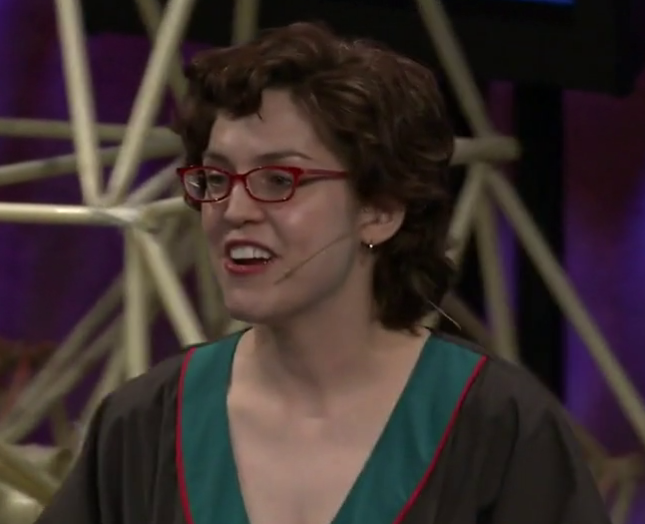Lexicography is really more about material science.
字典編纂學是研究物質的科學。
We are studying the tolerances of the materials that you use to build the structure of your expression: your speeches and your writing.
我們在研究不同物料的偏差,當你去架構你的表達的時候:你的演說和寫作。
And then, often people say to me, "Well, OK, how do I know that this word is real?"
于是人們常常對我說,“那好,我怎么知道這詞是真實存在的?”
They think, "OK, if we think words are the tools that we use to build the expressions of our thoughts,
他們認為,“好,如果詞語是我們用于表達思想的工具,
how can you say that screwdrivers are better than hammers?
那你怎么可以說起子比錘子要好?
How can you say that a sledgehammer is better than a ball-peen hammer?"
你怎么可以說這種錘子比那種錘子好?”
They're just the right tools for the job.
它們只是合適的工具而已。

And so people say to me, "How do I know if a word is real?"
由此,人們對我說,“我怎么知道一個詞是真正的詞?”
You know, anybody who's read a children's book knows that love makes things real.
任何讀過兒童讀物的人都知道,愛讓事物變真實。
If you love a word, use it. That makes it real.
如果你愛一個詞,用它。這樣子,它就成真了。
Being in the dictionary is an artificial distinction.
詞放在字典里只是人工的區分,
It doesn't make a word any more real than any other way.
這并沒有讓一個詞變得比其它詞更真實。
If you love a word, it becomes real. So if we're not worrying about directing traffic,
如果你愛一個詞,它才會變真實。如果我們不需要花心思在指揮交通上,
if we've transcended paper, if we are worrying less about control and more about description,
如果我們超越了紙張,如果我們少擔心控制而更關注表述,
then we can think of the English language as being this beautiful mobile.
那英語就成為一個美麗的活物了。
And any time one of those little parts of the mobile changes, is touched, any time you touch a word,
當其中的一個小組件變化了,被觸動了--任何時候你接觸到一個單詞,
you use it in a new context, you give it a new connotation, you verb it, you make the mobile move.
你把它用到新的內容中,你賦予它新的涵義,你就讓它活起來了--讓它移動了。











